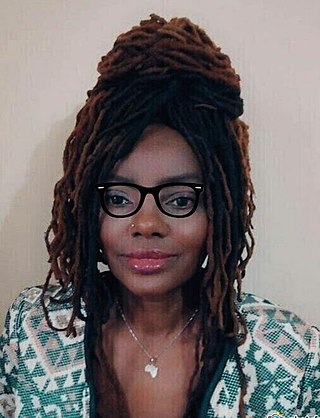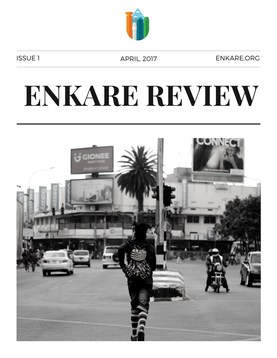
Electronic literature or digital literature is a genre of literature encompassing works created exclusively on and for digital devices, such as computers, tablets, and mobile phones. As electronic literature uses games, images, sound, and links, these writings cannot be easily printed, or cannot be printed at all, because elements crucial to the text are unable to be carried over onto a printed version.

The Jewish Book Council, founded in 1944, is an American organization encouraging and contributing to Jewish literature. The goal of the council, as stated on its website, is "to promote the reading, writing and publishing of quality English language books of Jewish content in North America". The council sponsors the National Jewish Book Awards, the Sami Rohr Prize for Jewish Literature, the JBC Network, JBC Book Clubs, the Visiting Scribe series, and Jewish Book Month. It publishes an annual literary journal called Paper Brigade.
Sudanese literature consists of both oral as well as written works of fiction and nonfiction that were created during the cultural history of today's Republic of the Sudan. This includes the territory of what was once Anglo-Egyptian Sudan, the independent country's history since 1956 as well as its changing geographical scope in the 21st century.

Kwani? is a prominent African literary magazine headquartered in Kenya. It has been hailed as "undoubtedly the most influential journal to have emerged from sub-Saharan Africa".
Crazyhorse is an American magazine that publishes fiction, poetry, and essays. Since 1960, Crazyhorse has published many of the finest voices in literature, including John Updike, Raymond Carver, Jorie Graham, John Ashbery, Robert Bly, Ha Jin, Lee K. Abbott, Philip F. Deaver, Stacie Cassarino, W. P. Kinsella, Richard Wilbur, James Wright, Carolyn Forché, Charles Simic, Charles Wright, Billy Collins, Galway Kinnell, James Tate, and Franz Wright.
Kachifo Limited is an independent publishing house based in Lagos, Nigeria. It was founded in 2004 by Muhtar Bakare. Its imprints include Farafina Books, Farafina Educational, and Prestige Books. From 2004 to 2009, it published the influential Farafina Magazine.

Bernardine Anne Mobolaji Evaristo is a British author and academic. Her novel Girl, Woman, Other jointly won the Booker Prize in 2019 alongside Margaret Atwood's The Testaments, making her the first Black woman to win the Booker. Evaristo is Professor of Creative Writing at Brunel University London and President of the Royal Society of Literature, the second woman and the first black person to hold the role since it was founded in 1820.

Wasafiri is a quarterly British literary magazine covering international contemporary writing. Founded in 1984, the magazine derives its name from a Swahili word meaning "travellers" that is etymologically linked with the Arabic word "safari". The magazine holds that many of those who created the literatures in which it is particularly interested "...have all in some sense been cultural travellers either through migration, transportation or else, in the more metaphorical sense of seeking an imagined cultural 'home'." Funded by the Arts Council England, Wasafiri is "a journal of post-colonial literature that pays attention to the wealth of Black and diasporic writers worldwide. It is Britain's only international magazine for Black British, African, Asian and Caribbean literatures."

Zukiswa Wanner is a South African journalist, novelist and editor born in Zambia and now based in Kenya. Since 2006, when she published her first book, her novels have been shortlisted for awards including the South African Literary Awards (SALA) and the Commonwealth Writers' Prize. In 2015, she won the K Sello Duiker Memorial Literary Award for London Cape Town Joburg (2014). In 2014, Wanner was named on the Africa39 list of 39 Sub-Saharan African writers aged under 40 with potential and talent to define trends in African literature. In 2020, she was awarded the Goethe Medal alongside Ian McEwan and Elvira Espejo Ayca, making Wanner the first African woman to win the award.

Moraa Gitaa is a Kenyan novelist, born in Mombasa. She is also a Peace Studies and Conflict Resolution researcher, cultural advocate and arts curator. She is the author of the YA novels Let's Talk About This, The Kigango Oracle, Hila and The Shark Attack.

Ellah Wakatama, OBE, Hon. FRSL, is the Editor-at-Large at Canongate Books, a senior Research Fellow at Manchester University, and Chair of the AKO Caine Prize for African Writing. She was the founding Publishing Director of the Indigo Press. A London-based editor and critic, she was on the judging panel of the 2017 International Dublin Literary Award and the 2015 Man Booker Prize. In 2016, she was a Visiting Professor & Global Intercultural Scholar at Goshen College, Indiana, and was the Guest Master for the 2016 Gabriel Garcia Marquez Foundation international journalism fellowship in Cartagena, Colombia. The former deputy editor of Granta magazine, she was the senior editor at Jonathan Cape, Random House and an assistant editor at Penguin. She is series editor of the Kwani? Manuscript Project and the editor of the anthologies Africa39 and Safe House: Explorations in Creative Nonfiction.

Jennifer Nansubuga Makumbi is a Ugandan-British novelist and short story writer. Her doctoral novel, The Kintu Saga, was shortlisted and won the Kwani? Manuscript Project in 2013. It was published by Kwani Trust in 2014 under the title Kintu. Her short story collection, Manchester Happened, was published in 2019. She was shortlisted for the 2014 Commonwealth Short Story Prize for her story "Let's Tell This Story Properly", and emerged Regional Winner, Africa region. She was the Overall Winner of the 2014 Commonwealth Short Story Prize. She was longlisted for the 2014 Etisalat Prize for Literature. She is a lecturer in Creative Writing at Lancaster University. In 2018, she was awarded a Windham-Campbell Prize in the fiction category. In 2021, her novel The First Woman won the Jhalak Prize.

Brittle Paper is an online literary magazine styled as an "African literary blog" published weekly in the English language. Its focus is on "build(ing) a vibrant African literary scene." It was founded by Ainehi Edoro. Since its founding in 2010, Brittle Paper has published fiction, poetry, essays, creative nonfiction and photography from both established and upcoming African writers and artists in the continent and around the world. A member of The Guardian Books Network, it has been described as "the village square of African literature", as "Africa's leading literary journal", and as "one of Africa's most on the ball and talked-about literary publications". In 2014, the magazine was named a "Go-To Book Blog" by Publishers Weekly, who described it as "an essential source of news about new work by writers of color outside of the United States."
Saraba is a nonprofit literary magazine published by the Saraba Literary Trust in Nigeria. First published in February 2009, it aims "to create unending voices by publishing the finest emerging writers, with focus on writers from Nigeria, and other parts of Africa". It has become one of the most successful literary magazines in and out of Africa.

Enkare Review is a Nairobi-based literary magazine established in August 2016, after initial conversations between Alexis Teyie, Troy Onyango, and Carey Baraka. In its short period of existence, it has published Taiye Selasi, Junot Díaz, Maaza Mengiste, Zukiswa Wanner, Namwali Serpell, Richard Ali, Lidudumalingani, Jericho Brown, Harriet Anena, Beverley Nambozo, Leila Aboulela, Nnedi Okorafor, Stanley Onjezani Kenani, Tendai Huchu, Kọ́lá Túbọ̀sún among others, and interviews with prolific African writer Chuma Nwokolo; and The New Yorker's editor, David Remnick.

Troy Onyango is a Kenyan writer, editor and lawyer. His work has appeared in journals and magazines including Prairie Schooner, Wasafiri, Caine Prize Anthology, Brittle Paper, and Transition Magazine issue 121, for which his short story "The Transfiguration" was nominated for the Pushcart Prize. His short story "For What Are Butterflies Without Their Wings" won the fiction prize for the inaugural Nyanza Literary Festival (NALIF) Prize.
Ainehi Edoro is a Nigerian writer, critic and academic. She is the founder and publisher of the African literary blog Brittle Paper. She is currently an assistant professor of Global Black Literatures at the University of Wisconsin-Madison. Her areas of research include 21st-century fiction, literature in digital/social media, The Global Anglophone Novel, African Literature, Contemporary British Fiction, Novel Theory, Political Philosophy, and Digital Humanities.

Idza Luhumyo is a Kenyan short story writer, whose work explores Kenyan coastal identities. In July 2020, Luhumyo was announced as the inaugural recipient of the Margaret Busby New Daughters of Africa Award. She was the winner of the 2021 Short Story Day Africa Prize with her story "Five Years Next Sunday", which also won the 2022 Caine Prize.
Oghenechovwe Donald Ekpeki or Ekpeki Oghenechovwe Donald is a Nigerian speculative fiction writer, editor and publisher who is the first African-born Black author to win a Nebula Award. He's also received a World Fantasy Award, British Fantasy Award, Otherwise Award, and two Nommo Awards along with being a multi-time finalist for a number of other honors including the Hugo Award.

The Johannesburg Review of Books is a South African online magazine based on other literary magazines such as the New York and London Review of Books. Its bi-monthly issues include reviews, essays, poetry, photographs, and short fiction focused predominantly but not exclusively on South Africa and other African countries.














